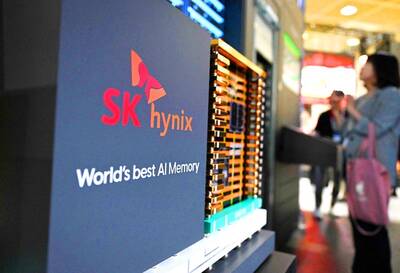Herbalife Ltd, the company that hedge fund manager Bill Ackman has accused of being a pyramid scheme, is being probed by the US FBI, according to a person familiar with the matter.
US authorities are looking into the company’s marketing practices, said the person, who asked not to be identified because the investigation is private.
The Financial Times reported the probe on Friday, saying the FBI and the US Attorney’s Office in Manhattan were involved.
Herbalife, which said on Friday it had no knowledge of an FBI or US Department of Justice probe, has spent more than a year denying Ackman’s accusations that it misleads distributors, misrepresents sales and sells a commodity product at inflated prices.
In that time, the company has won allies such as billionaire Carl Icahn, who has become its largest shareholder.
“Not every probe leads to an indictment,” Meredith Adler, an analyst for Barclays PLC in New York, said in an interview. Adler, who recommends buying the shares, said she will wait for more details before forming an opinion.
Shares of Cayman Islands-based Herbalife dropped 14 percent to US$51.48 on Friday in New York trading. That’s the biggest one-day decline since Dec. 21, 2012, the day after Ackman laid out his arguments against the company in a presentation that stretched longer than three hours.
Representatives of Icahn and Ackman did not immediately respond to requests for comment. Jim Margolin, a spokesman for Manhattan US Attorney Preet Bharara, declined to comment.
Herbalife, which sells vitamins and meal-replacement shakes through a network of independent distributors, said on Friday in a statement that it has not received requests for information from the FBI or the Justice Department.
“Herbalife does not intend to make any additional comments regarding this matter unless and until there are material developments,” the company said.
The company disclosed last month that the US Federal Trade Commission had started a civil probe into its practices, which Ackman had sought since his New York-based firm, Pershing Square Capital Management LP, bet US$1 billion against Herbalife’s shares.
The trade commission had been asked by US Senator Edward Markey, a Massachusetts Democrat, to look into Herbalife’s business practices, and an advocacy group called the League of United Latin American Citizens also had met with agency Chairwoman Edith Ramirez to describe alleged abuses by the company.
The New York Times has reported that Ackman donated US$10,000 to the advocacy group and hired a former Markey aide as part of his anti-Herbalife campaign.
Defending Herbalife has been Icahn, who last year disclosed his stake in the nutrition company and said he would discuss strategic alternatives with its management, which works from an office in Los Angeles. Icahn has since increased his stake to 17 percent, according to data compiled by Bloomberg. Herbalife said last month that it would nominate three board members picked by Icahn.

Intel Corp chief executive officer Lip-Bu Tan (陳立武) is expected to meet with Taiwanese suppliers next month in conjunction with the opening of the Computex Taipei trade show, supply chain sources said on Monday. The visit, the first for Tan to Taiwan since assuming his new post last month, would be aimed at enhancing Intel’s ties with suppliers in Taiwan as he attempts to help turn around the struggling US chipmaker, the sources said. Tan is to hold a banquet to celebrate Intel’s 40-year presence in Taiwan before Computex opens on May 20 and invite dozens of Taiwanese suppliers to exchange views

Application-specific integrated circuit designer Faraday Technology Corp (智原) yesterday said that although revenue this quarter would decline 30 percent from last quarter, it retained its full-year forecast of revenue growth of 100 percent. The company attributed the quarterly drop to a slowdown in customers’ production of chips using Faraday’s advanced packaging technology. The company is still confident about its revenue growth this year, given its strong “design-win” — or the projects it won to help customers design their chips, Faraday president Steve Wang (王國雍) told an online earnings conference. “The design-win this year is better than we expected. We believe we will win

Power supply and electronic components maker Delta Electronics Inc (台達電) yesterday said it plans to ship its new 1 megawatt charging systems for electric trucks and buses in the first half of next year at the earliest. The new charging piles, which deliver up to 1 megawatt of charging power, are designed for heavy-duty electric vehicles, and support a maximum current of 1,500 amperes and output of 1,250 volts, Delta said in a news release. “If everything goes smoothly, we could begin shipping those new charging systems as early as in the first half of next year,” a company official said. The new

SK Hynix Inc warned of increased volatility in the second half of this year despite resilient demand for artificial intelligence (AI) memory chips from big tech providers, reflecting the uncertainty surrounding US tariffs. The company reported a better-than-projected 158 percent jump in March-quarter operating income, propelled in part by stockpiling ahead of US President Donald Trump’s tariffs. SK Hynix stuck with a forecast for a doubling in demand for the high-bandwidth memory (HBM) essential to Nvidia Corp’s AI accelerators, which in turn drive giant data centers built by the likes of Microsoft Corp and Amazon.com Inc. That SK Hynix is maintaining its